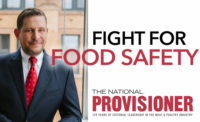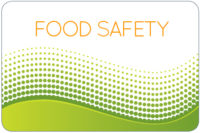It is well-known within the meat processing industry, with very few exceptions, that there is no such thing as a mandatory recall. Put differently, because the U.S. Department of Agriculture was never given “mandatory recall authority” by Congress, and thus did not have the ability to force a company to take the steps necessary to recall a food product, all recalls announced by industry were generally deemed to be “voluntary.”
But, what does the term “voluntary” really mean?
For those companies who have been on the receiving end of a USDA Recall Committee conference call, attended by no less than 20 USDA representatives all “urging in the strongest possible terms” that the company recall its products, the idea of a voluntary recall is a complete fallacy. This is even more true when the company is told and threatened during these calls that the refusal to initiate a “voluntarily” recall will be met with enhanced regulatory enforcement activities, the seizure of product, and/or court-ordered injunctions. And, then, if the company then hints in response, even if only slightly, that it might be willing to consider a “voluntary” recall, the USDA will then afford the company a mere 30 minutes to review the recall announcement that the USDA drafted, prior to the USDA announcing the existence of the voluntary recall to the public. When contrasted against the guaranteed constitutional protections of due process, the increasingly routine practice by USDA of coercing and strong-arming companies to “voluntarily” conduct recalls in the absence of legal authority is a little worrisome.
I have also witnessed this authority used by USDA to compel a “voluntary” recall when, perhaps, reasonable minds might differ about whether a recall was actually necessary. Imagine the following hypothetical – a single ingredient (i.e., a ready-to-eat onion) incorporated into a frozen product (i.e., a pizza) is later discovered to be contaminated with Listeria monocytogenes. Although the supplier of the RTE onions recalls the product because it will likely be consumed by consumers without cooking, the pizza has detailed cooking instructions that, if followed, would destroy any pathogens that might be present.
Should the hypothetical frozen product be recalled? I suppose it depends upon the sensitivities of the USDA Recall Committee on that particular given day. If the committee would like to see the product recalled regardless of the cooking instructions and likelihood that any Listeria present will be destroyed by consumers, the committee might nevertheless elect to strong-arm the company into announcing a “voluntary” recall, as detailed above, under the threat of more significant consequences.
In the end, food companies often find themselves at an extreme disadvantage when dealing with USDA when standing on the precipice of potential (but possibly not necessary) recall of food products. I thus strongly recommend that USDA consider becoming less bullish (and more calm and reasonable) when working with companies contemplating recall decisions and that companies at least consider pushing back on the USDA’s bullying when the agency is wrong.
A voluntary recall is not unconstitutional, but leaving a company with no real choice but to choke on its own recall without any discrete legal authority may cross the line.





Report Abusive Comment